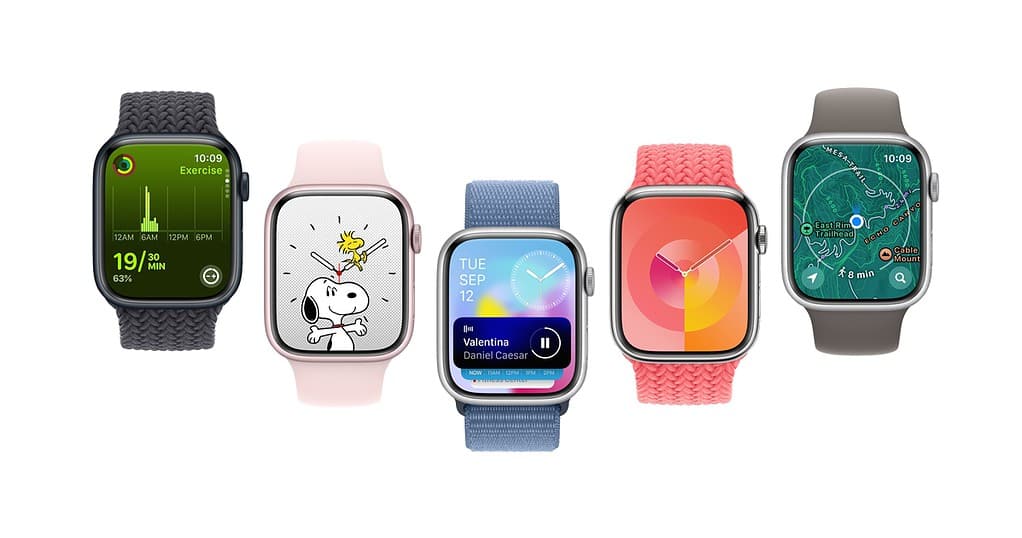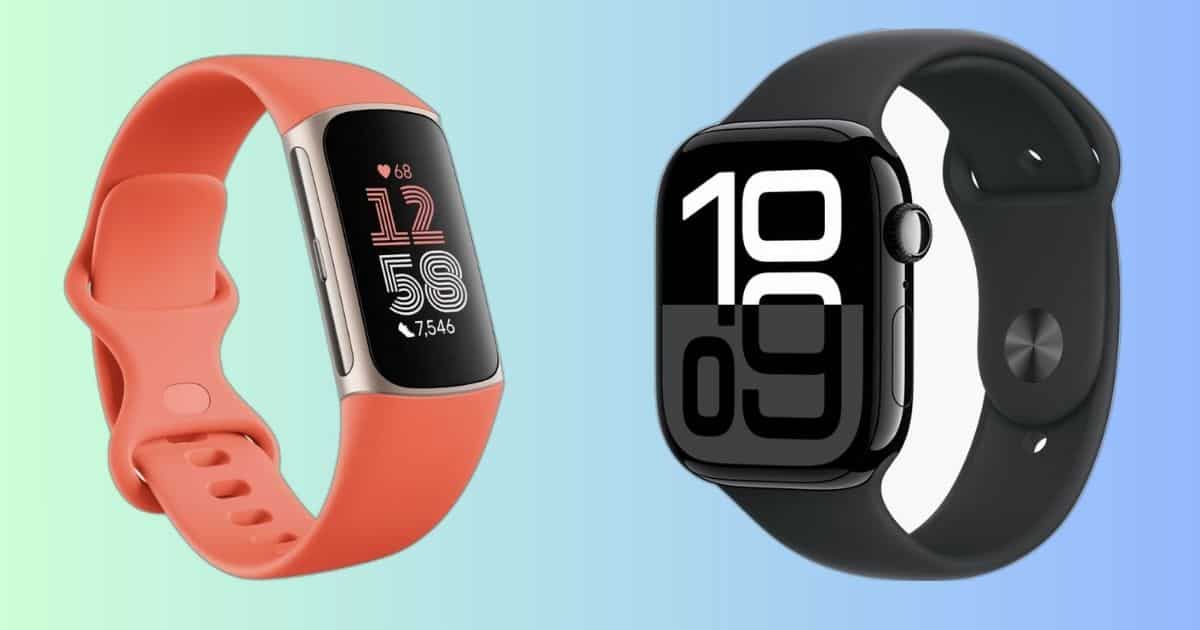Apple Watch and Fitbit fans have been butting heads forever. Fitbit is one of the pioneers of modern fitness tracking, while Apple turned smartwatches into multi-purpose devices. It’s no surprise their users don’t see eye to eye. If you want to start a heated debate, just ask any tech forum which one is better.
Like smartphones, your smartwatch says a lot about you, so choosing what model to get is not just about specs. You need one that suits your lifestyle. Here are all the factors you should consider so that you get the most bang for your buck.
1. Fitness Tracking & Health Metrics

By and large, the Apple Watch has always been a smartwatch with health and fitness capabilities. It’s not a dedicated workout tracker per se. People getting into sports typically use whatever smartwatch they already have, but they upgrade to a Fitbit (or Garmin or Coros) as they progress.
Fitbit has the edge here. It was built around health tracking and offers more detailed sleep analytics, advanced recovery insights, and readiness scores that older Apple Watch models lack. Fitbit’s heart rate monitoring and sleep tracking algorithms are validated for accuracy, and newer models include ECG, SpO2, and skin temperature sensors to track long-term health trends.
That said, newer Apple Watch models (Series 10 and Ultra) also come with extensive health tracking features. They can monitor for sleep apnea, heart rate training, and workout efficiency. But I have to emphasize that they also cost two to three times more than most Fitbit models (we’ll get into price and value for money later).
2. Smart Features & Ecosystem Integration
This is where Apple Watch truly dominates. As a full-fledged smartwatch, it syncs with iMessage, handles calls, controls smart home devices, and supports Siri commands. If you’re in the Apple ecosystem, it’s practically an extension of your iPhone. You can use it to unlock your Mac, authenticate logins, or even use Apple Pay with a tap of your wrist.
Fitbit, while improving in this area, is still more of a fitness tracker than a true smartwatch. Notifications are one-way only (you can’t reply to texts on most models), and app support is limited compared to watchOS. Google Assistant and Alexa are available on some models, but voice commands feel less responsive than Siri on Apple Watch.
3. Battery Life & Charging Speed

Endurance athletes love Fitbit for their battery performance. Most models last five to seven days on a single charge, while the average Apple Watch typically lasts 18 to 24 hours. It also takes less time to charge a Fitbit. You can get it up to 80% in under 40 minutes.
On the contrary, the robust features of an Apple Watch require a lot of resources. You can wear it when sprinting, lifting, or even long-distance running, but it’s not as reliable for sporting activities that take several days (e.g., hiking, trail running, or ultramarathons).
4. Customization & Wearability

The Apple Watch is a stylish wearable. You can shop for watch bands and cases, plus the watch face supports customizable widgets and wallpapers. They’re easy to pair with any outfit. If you’re going for a sporty, active look, you can wear a rubber strap and install a Strava widget on your display. Meanwhile, a stainless steel bracelet and plain watch face gives you a more refined look.
Fitbit takes a lighter, sportier approach. Most models prioritize functionality—they’re designed for all-day wear and sleep tracking. You might not even notice that they’re on your wrist. In fact, I sometimes forget to take them off after a workout because they’re so light and discreet.
5. Price & Value for Money
Apple Watches start at $249 (SE models) and can go upward of $799 for Ultra models. They’re no doubt a premium investment. You’re paying for ecosystem integration, top-tier smartwatch features, and advanced build quality.
Alternatively, Fitbit is far more budget-friendly. Its models range from $99 (basic trackers like Inspire 3) to $329 (Sense 2). Sure, you won’t get all the bells and whistles, but the basic features are enough to jumpstart (or boost) your fitness journey.
Fitbit vs Apple Watch: Which Is Better?
So, should you get a Fitbit or an Apple Watch? You might hate my answer, but it depends. At the end of the day, it’s not about which smartwatch is better—it’s about assessing which one best suits your needs.
Choose Fitbit if you want a dedicated health and fitness tracker with long battery life and a lightweight design that’s great for 24/7 wear. But if you want a powerful smartwatch that can integrate with your iPhone, support tons of apps, and go far beyond just tracking workouts, get the Apple Watch. Either way, you’re getting a great wearable.
